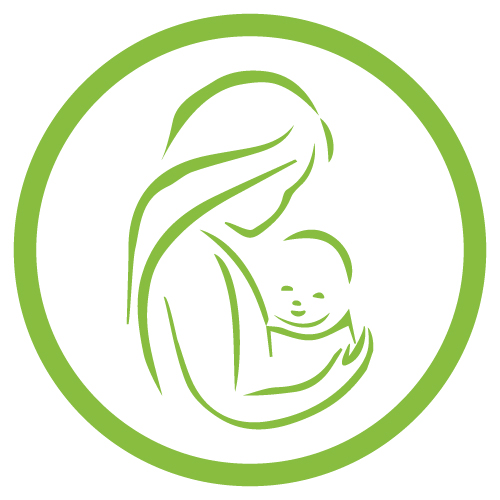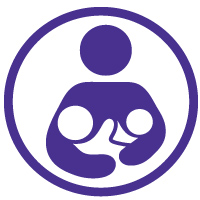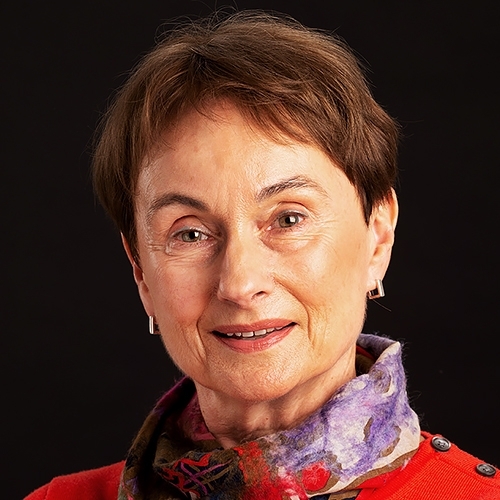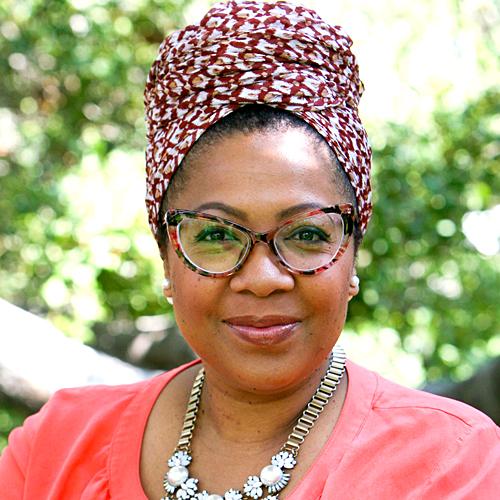
Beyond the Basics of Latch: Support Strategies for Helping Babies when the Basics Aren’t Enough

Melissa Cole, MS, IBCLC, RLC is a board certified lactation consultant, neonatal oral-motor assessment professional, and clinical herbalist in private practice. Melissa has been passionate about providing comprehensive, holistic lactation support and improving the level of clinical lactation skills for health professionals. She enjoys teaching, researching and writing about wellness and lactation-related topics. Melissa holds a bachelor of science degree in maternal child health and lactation consulting and her master’s work is in therapeutic, clinical herbalism. Melissa actively conducts research and collaborates with several lactation and health care professional associations. Before pursuing her current path, Melissa’s background was in education and cultural arts, which has served her well in her work as a lactation consultant and healthcare educator. She loves living, working and playing in the beautiful Pacific Northwest with her 3 children.
Topic: Beyond Fenugreek: An Individualized Approach to Dietary and Herbal Galactagogues - [View Abstract]
Topic: Beyond the Basics of Latch: Support Strategies for Helping Babies when the Basics Aren’t Enough - [View Abstract]
Topic: Common Infant Digestive Health Concerns and Useful Support Strategies - [View Abstract]
Topic: Connection and Care: Virtual Support for Tongue-Tied Infants - [View Abstract]
Topic: Feeding is Movement: Activities for Supporting Optimal Infant Oral Function - [View Abstract]
Topic: Infant Gut Health: Common Concerns and Useful Support Strategies - [View Abstract]
Topic: Infant Oral Assessment: Exploring Anatomy and Function Beyond the Frenulum - [View Abstract]
Topic: Low Milk Production Detective Work: Assessment and Care Plan Considerations - [View Abstract]
Topic: Nature’s Nurturers: Plant Medicine for Perinatal Mental Health - [View Abstract]
Topic: New Thoughts on Infant Pre and Post-Frenotomy Care - [View Abstract]
Topic: Placenta Medicine as a Galactogogue: Tradition or Trend? - [View Abstract]
Topic: Thinking Critically About the Use of Clinical Lactation Tools - [View Abstract]
Topic: Will It Hurt? Frenotomy Aftercare Strategies to Optimize Healing Outcomes for the Newborn - [View Abstract]
In a perfect world, every baby would latch beautifully right after delivery and breastfeed happily ever after. In reality what we often see is that most moms and babies need a little help to get breastfeeding off to a good start. Many dyads need a lot of help. And a few mother/baby pairs need a miracle to breastfeed successfully. How can we best help those tough cases? There are many reasons babies struggle to latch and feed well. Some issues may include structural issues, physical discomfort, respiratory concerns, medical issues, digestive issues, poor feeding tool choices, prematurity, etc. Many providers are frustrated when they are unable to help a dyad latch and feed successfully. This presentation will cover some reasons why babies struggle to latch and breastfeed well. We will go over cases that portray challenging situations and the assessment techniques and care plan strategies that helped. This session is designed to help providers implement critical thinking skills in order to think outside the box when it comes to difficult cases.

View Details / Enroll
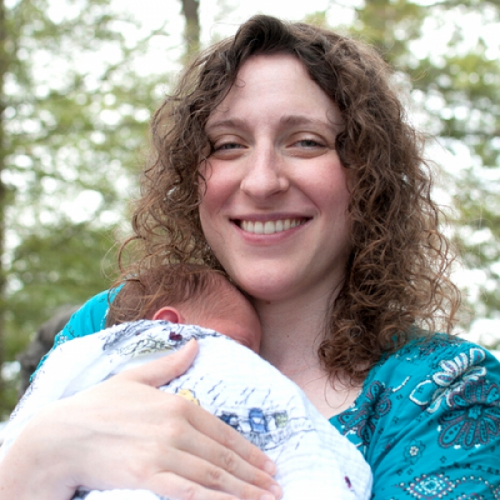
Beyond the Birth Plan: Trauma-Informed Childbirth Preparation for Survivors

Dr Justine Leach is an advocate for trauma-informed care in the perinatal period and co-founder of Resilient Birth, a company which trains healthcare providers and other perinatal professionals in supporting survivors giving birth. She also helps expectant parents with histories of trauma prepare for childbirth through trauma-informed childbirth education classes and birth support planning. Dr Leach became a B.A.C.E. certified childbirth educator and advocate after the birth of her two children revealed the impact of trauma experiences on childbirth. She has a Ph.D. on representations of sexual consent in narratives of rape and sexual trauma, and facilitates the Trauma-Informed Perinatal Professionals facebook group. Justine speaks about the experience of giving birth as a survivor of rape and the important role healthcare providers and perinatal professionals play in a birth giver’s experience of trauma or healing.
Survivors of trauma are at an increased risk not only of experiencing post-traumatic stress symptoms during their pregnancy, but also birth trauma and postpartum PTSD. Yet too often survivors’ needs are ignored and traditional childbirth preparation is neither trauma-informed nor supportive of survivors’ emotional experiences. This presentation envisions what childbirth preparation looks like from a trauma-informed perspective. It will explore how to create safety in our relationships with birth givers, how to help survivors feel their power, and how to hold space for their emotional journey to parenthood. I discuss the impact of previous trauma on birth givers in pregnancy and birth, and explore what can be done prenatally to prevent birth trauma. Participants will gain practical skills for supporting survivors’ emotional wellbeing and for helping them to plan for a safe birth experience. This involves rethinking the birth plan. Instead of merely articulating a birth givers’ preferences for or against interventions, a birth plan should be rethought as a Birth Support Plan: that is, it should communicate what a birth giver needs to feel safe, understood, and in control of the decisions they make around their care whether their birth goes to plan or not.

Beyond the Letdown: Dysphoric Milk Ejection Reflex and the Breastfeeding Mother

Alia Macrina Heise has worked in the field of lactation since 2004. She is considered the international authority on the topic of dysphoric milk ejection reflex (D-MER). She has been the forerunner in identifying, naming and investigating the anomaly of dysphoria with milk ejection reflex since 2007. She has spoken on the subject at many notable conferences, including GOLD, has given several interviews on the subject for both print and podcasts and has been published through her work on a case study about D-MER for The International Breastfeeding Journal. In 2017 she released the first book on the subject. Alia's passion and enthusiasm for the topic of D-MER are evident in the energy that she demonstrates in her presentations and the novelty of new information on a subject that is not yet well known or understood by many makes for an engaging and interesting presentation. Alia is not only a former sufferer of the lactation anomaly herself, she is also the webmaster of d-mer.org and she works closely with mothers around the world who are suffering with the condition in order to support them and to better understand the variance of the experience. She is also in frequent contact with other professionals in order to spread awareness and to support further research and investigation into the subject. Outside of her work with D-MER, she is also in private practice as an IBCLC in the Finger Lakes region of New York. She lives in a small rural town where she enjoys country living with her three children.
Dysphoric milk ejection reflex (D-MER), is not a new phenomenon. In the past, it was almost like Voldemort, the Problem That Must Not Be Named. But for over 10 years now, it has had a name and been brought into daylight. Though still not widely known or understood by many, the hypothesis of the mechanism and possible sustainable solutions are becoming better documented all the time. D-MER has been the subject of two case studies, one case series, and a qualitative research study. Two other studies as also in process at this time.
Mothers with D-MER feel, as a reflexive response with every single milk release, a wave of negative emotions ranging (depending on severity) from homesickness to hopelessness and despair, perhaps even anger and suicidal ideation. These emotions dissipate shortly after milk release and reoccur with the start of every MER, whether with breastfeeding, expressing or with spontaneous releases. Many sufferers keep the problem to themselves preferring the weaning of their baby to being incorrectly labeled as depressed or victims of abuse. Upon experiencing D-MER mothers are initially convinced the problem is physiological and not psychological, and they are correct.
As both a lactation consultant and a sufferer of D-MER, I first named and identified D-MER over 10 years ago. Now, through the case studies that have been done, collaboration with other medical and breastfeeding care providers, and the collection of information from the anecdotal reports from over 1,000 mothers, there is now a foundation of understanding of D-MER. Though the evidence base for D-MER is still mainly unestablished at this time, there are many professionals always working to bring evidenced-based information to the study of human lactation. This is exactly what the slow work and understanding of D-MER is about; the process of bringing new information into the light for further research and understanding.
In the PowerPoint presentation that I have to present, I discuss how D-MER presents, its tell-tale manifestation, and its spectrum and intensities. The presentation also explains the currently proposed mechanism of the MER anomaly, how health care providers can identify a mother it D-MER and how to help and support mothers with the condition.

Beyond the Rooting Reflex: The Role of Primitive Reflexes in Lactation

Gretchen Becker Crabb is an Occupational Therapist, Licensed Professional Counselor, and Endorsed Infant Mental Health Therapist. She is also a Certified Lactation Counselor, La Leche League Leader, and Brazleton Newborn Observation (NBO) trainer.
Gretchen’s passion is rooted in fostering lifelong relationships and connection through co-regulation in pregnancy and beyond. Her unique approach to lactation support and therapy is rooted in culturally attuned sensory, somatic, and trauma-informed mental health techniques.
Gretchen owns and operates a private practice in Madison, Wisconsin. For 21 years, she has provided developmental, trauma, feeding, and attachment support for tiny humans and their caregivers in birth to three, preschool, private practice, and peer group settings. Gretchen is an international speaker, reflective supervisor, and infant mental health consultant. In these roles, she offers compassionate, experiential, and reflective holding spaces for professionals. She is a proud United States Air Force spouse and mother of three boys.
Topic: Infant Mental Health: What Does It Look Like in Practice? - [View Abstract]
Topic: Scent-Sational Connections: The Role of Olfaction in Development - [View Abstract]
Topic: Sensory Processing and Breast/Bodyfeeding: Using Co-Regulation to Support the Feeding Relationship - [View Abstract]
Topic: Vestibular Processing: Using the Sixth Sense to Support Lactation and Parent/Infant Relationships - [View Abstract]
Primitive reflexes play an instrumental role in the birth process and lactation, motor, regulatory, and social emotional skill development. Reflexes not only serve to help us develop a sense of self, but they also assist to promote meaningful interactions with other people and the world around us. In this presentation, we explore how the integration of sensory processing and primitive reflexes support parents and infants in lactation. We will also look at how the function of these reflexes can impact learning, mental health and regulation skills in infants, children, and adults. Experiential activities will be used to enhance participants understanding of each reflex and experiment with supportive strategies to use with families.

View Details / Enroll


Dr. Rice has been working at the intersection of education and health for social justice and public good. She is the former Executive Director of the Breastfeeding Coalition of Oregon. Currently, Dr. Rice works on organizational development, communication, marketing, public policy and community engagement to advance health equity through access to donor human milk. A national thought leader, she is deeply engaged in convening conversations about the importance of maintaining women’s biological integrity, advancing feminist approaches to human milk banking and at the same time, encouraging capacity building for human milk derived therapies improving health outcomes for the most vulnerable babies.
Most recently Dr. Rice provided consulting as a Policy Associate with Mothers' Milk Bank of San Jose and has provided strategy and policy consulting for the Human Milk Banking Association of North America (HMBANA). Marion holds a doctorate in Education Leadership and is an Internationally Board Certified Lactation Consultant, IBCLC.
This session will look at how for profit corporations are seeking to aggregate, control and exploit human milk. In the absence of federal health policy and consumer regulation/protection, companies are emerging seeking to build commercial markets for human milk often under the guise of improving the economic status of women and infant health.
We will examine companies currently paying for milk both domestically and internationally and the implications for women and emerging policy both at the federal and state level.
Entities setting a price for human milk in the absence of supportive public policy may in fact undermine women’s biological integrity, infant health and contribute to the vulnerability of women and babies.
I will ask participants to consider the issues and to support models of community engagement and decision making that are women centered and women led that keep this biologically critical substance within the community from where it comes; supporting breastfeeding and benefiting women and babies.
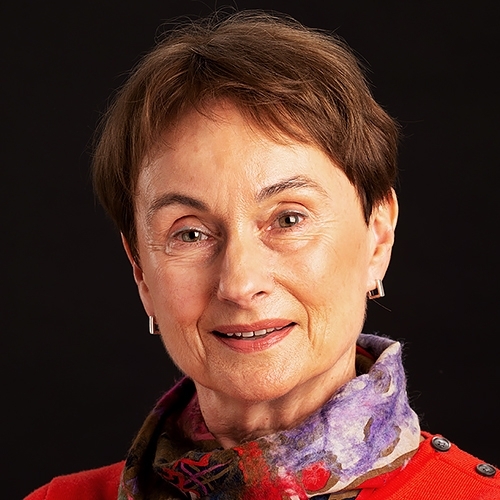

Jo Gilpin is a Registered Nurse, Midwife and has worked for many years as a Child Health Nurse with the Child and Family Health Service in South Australia (CaFHS). During this time she completed a Graduate Diploma in Health Counselling. She also studied Infant Mental Health at the University of South Australia. She became an IBCLC in 1996.
Her passion throughout has been educating, encouraging and supporting parents to have successful, enjoyable, breastfeeding relationships with their babies. This has been the main focus of her work.
She has worked privately as a Lactation Consultant since 2005. She has published two books, both on breastfeeding. Her most recent is 'Brilliant Breastfeeding: A Sensible Guide'. This was published in October 2018. This book aims to sensitively guide parents and future parents towards fulfilling breastfeeding relationships with up-to-date, evidence-based information. Attention is paid to the many challenges that parents face.
Jo loves what she does and never considers it 'work'. She lives with her husband on Kangaroo Island, which is just off the southern coast of South Australia. Her children and five grandchildren live in Sydney and Brisbane.
A baby’s birth can have a significant impact on breastfeeding outcomes. Medical intervention in normal birthing situations is rife, and globally cesarean rates have soared since 2000. Along with this, breastfeeding rates are less than ideal. A mother who feels a sense of grief about the birth of her baby is consequently more likely to face breastfeeding challenges. IBCLC’s, midwives and medical officers will often begin a breastfeeding consultation by listening to a mother’s unhappy perception of her baby’s birth. This aspect needs to be sensitively supported.
It is high time we take stock and pay more attention to what world health authorities are recommending to improve birthing and thus breastfeeding outcomes. These outcomes can affect a mother’s feelings of empowerment, her physical and mental health. Baby’s health and general development are statistically better when breastfed. There are significant financial savings made by reducing costs in various countries health systems when mothers breastfeed successfully.
There are definite changes we can make, following recommended guidelines and recent research. We can do this individually in our work and also in our affiliations with professional bodies by supporting and encouraging government policymakers and advocacy groups.
These are our future challenges.

View Details / Enroll
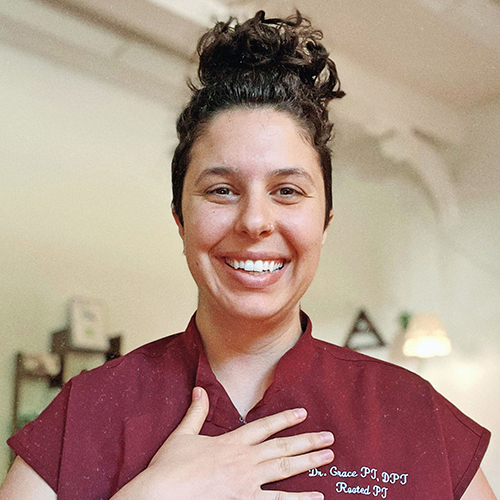

Grace Abruzzo PT, DPT, CAPP-OB, CD(DONA), PYT-C, (she/they) is a licensed physical therapist and trauma healer specializing in pelvic health. A certified specialist in obstetric and pelvic physical therapy, Dr. Grace uses an integrative approach to treating people in preparation and recovery from childbirth, conception, menstruation and menopause. Dr. Grace also spends time in birthing spaces, supporting mamas during labor and birth.
Dr. Grace utilizes an integrative approach to wellness, which includes interventions like education; manual therapeutic techniques, including visceral, myofascial, and internal pelvic mobilizations; yoga therapy; meditation practice; Compassionate Inquiry TM, and Somatic Experiencing TM.
Having a strong understanding of pelvic and vulvovaginal anatomy and physiology is crucial to help prepare the birthing body for childbirth. Whether preparing for homebirth, birthing center, or hospital setting, prevention of injury of the birthing person supports a healing and positive birthing and post-partum experience. Deepen your knowledge of the fascia, pelvic joints, muscles and nerves in the pelvis and learn what the latest research tells us about positioning for labour and birth, spontaneous pushing and perineal preparation and common myths.


Parijat Deshpande is the leading integrative high-risk pregnancy specialist, somatic stress & trauma professional and speaker and author who guides women to improve their pregnancy complications so they can reduce their risk of preterm birth. Her unique neurobiological approach has served hundreds of women to manage pregnancy complications and reclaim a safety and trust in their bodies that they thought was eroded forever. Parijat is the author of bestselling book Pregnancy Brain: A Mind-Body Approach to Stress Management During a High-Risk Pregnancy. She is also the host of the popular podcast Delivering Miracles®️, that discusses the real, raw side of family-building including infertility, loss, high-risk pregnancy, bed rest, prematurity and healing once baby comes home. Parijat professional training is in clinical psychology and she is a Certified Trauma Professional and Certified Clinical Trauma Specialist for individuals.
Birth trauma is a preventable complication of pregnancy and providers play a critical role in this prevention. Preventing birth trauma not only supports a positive birth experience for the birthing person, but sets the foundation for optimal post-pregnancy health. This is because birth trauma is a catalyst for various long-term health issues for the birthing person including attachment difficulties, chronic pain, chronic illness, autoimmune diseases, postpartum mood and anxiety disorders, as well as an increased risk of pregnancy complications in future pregnancies. Through the study of somatic and somatosensory modalities, as well as years of client work in the high-risk pregnancy population, I have seen clients at risk for pregnancy complications and preterm birth defy medical odds and protect themselves from a traumatic birth in their pregnancies after loss or preterm birth. This presentation will cover the three most important roles of a provider in the facilitation of birth trauma prevention.

View Details / Enroll

Breaking the Silos: Understanding the Connections Between Labor Interventions and Lactation

Janiya Mitnaul Williams, MA, IBCLC, RLC, CLC is an International Board Certified Lactation Consultant, Registered Lactation Consultant, and Certified Lactation Counselor who has been supporting nursing families since 2007. She holds degrees from North Carolina Agricultural and Technical State University and Union Institute and University in Speech-Language Pathology and Audiology and Health & Wellness with a concentration in Human Lactation respectively.
Janiya is the Program Director of the Pathway 2 Human Lactation Training Program at N.C. A&T SU (NCAT P2P). She also works for the Women’s and Children’s Center at Cone Health as the Co-Coordinator for Doula Services. In 2015 she created Mahogany Milk Support Group in order to promote, encourage, and normalize nursing for Black and Brown families. That same year, Janiya also became the first person of color and Non-Registered Nurse to be hired as a Lactation Consultant for Cone Health’s hospital system.
She is most passionate about creating diversity, equity, and inclusion within the field of Lactation in order to promote better health outcomes for Black and Brown, marginalized, and underprivileged families because they have the greatest lactation barriers to overcome.
Birth and breastfeeding/chestfeeding are intimately woven together although many separate the two. One's labor and birth process however, have a direct impact on how their nursing journey begins. Naturally, most infants can independently progress through the fetal to neonatal transition and produce a baby-led latch within the first hours of life. However, the process of birth is often unpredictable and many birthing families are regularly faced with common or unexpected labor interventions that can adversely affect milk supply and the initiation and receptivity of breastfeeding/chestfeeding for the infant. Some of the most common interventions include: IV fluids, induction of labor, epidurals, and continuous electronic fetal monitoring. These maternity care practices come with unintended consequences that directly impact lactation. Furthermore, studies indicate that many of these interventions are done more for convenience as opposed to medical reasoning. In order to promote, protect and support breastfeeding/chestfeeding for birthing families, providers and other members of the healthcare team should be encouraged to work in tandem; using effective communication and facilitating open dialogue. By including families in every aspect of their birth and postpartum period, self-efficacy and confidence is increased and trust is developed, setting the foundation for increased initiation and duration of human milk feeding.
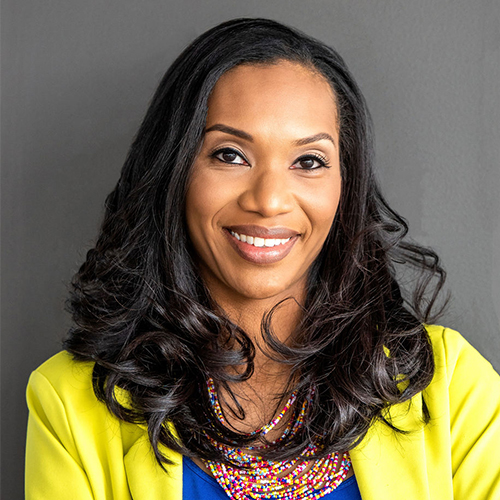
View Details / Enroll
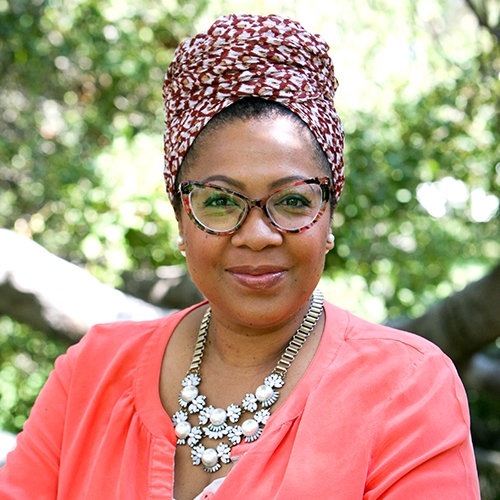

Nekisha Killings is an equity strategist, internationally board-certified lactation consultant, and maternal and child health advocate who speaks, teaches, and facilitates on topics related to equity and dismantling bias across various sectors.
When she is not home educating 4 future world changers, she acts as a Director of Equity, Inclusion and Belonging at Lactation Education Resources and consults organizations on creating and implementing strategies to better support marginalized communities.
Nekisha holds a Masters in Public Health and penned the chapter titled Cultural Humility in the latest Core Curriculum for Interdisciplinary Lactation Support text. Nekisha is on a mission to normalize brown breasts and nipples in health education, thereby better equipping healthcare providers to accurately assess and treat people of color.
Nekisha's work is rooted in a compassion and candor that could only have been cultivated in years of supporting new parents during their first days of parenthood. Nekisha is an active duty military spouse who has been awarded the Spouse of the Year designation for her volunteer efforts supporting families.
Topic: Breast Assessment and Non-White Skin Tones - [View Abstract]
Topic: BreastSide Manner: A Patient-Centered Approach to Lactation Support - [View Abstract]
Topic: Marching Orders: Developing Practical and Impactful Care Plans - [View Abstract]
Is a red spot always a key indicator of mastitis? What about the deep purple trademark of vasospasm? How does eczema present on non-white skin? Performing a standard breast assessment may cause clinicians to overlook or misidentify key indicators of maladies in patients that are not fair skinned. Learn how you can improve your assessments and familiarize yourself with other ways to identify common conditions in patients populations that may not have been featured in your textbooks.




